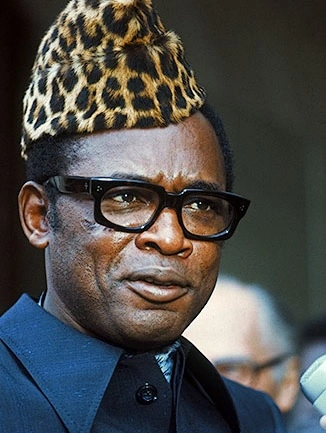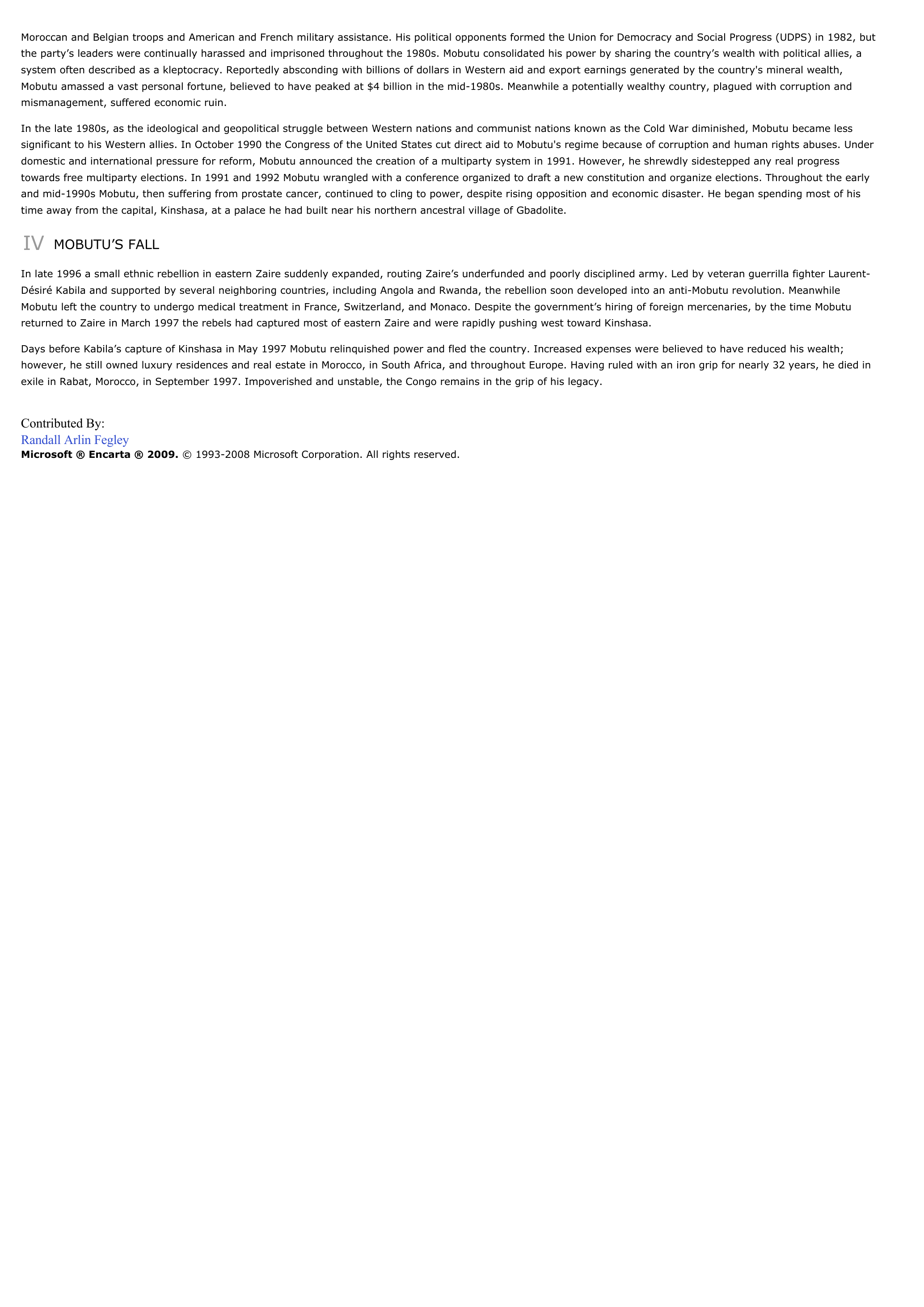Mobutu Sese Seko - history.
Publié le 26/05/2013

Extrait du document


«
Moroccan and Belgian troops and American and French military assistance.
His political opponents formed the Union for Democracy and Social Progress (UDPS) in 1982, butthe party’s leaders were continually harassed and imprisoned throughout the 1980s.
Mobutu consolidated his power by sharing the country’s wealth with political allies, asystem often described as a kleptocracy.
Reportedly absconding with billions of dollars in Western aid and export earnings generated by the country's mineral wealth,Mobutu amassed a vast personal fortune, believed to have peaked at $4 billion in the mid-1980s.
Meanwhile a potentially wealthy country, plagued with corruption andmismanagement, suffered economic ruin.
In the late 1980s, as the ideological and geopolitical struggle between Western nations and communist nations known as the Cold War diminished, Mobutu became lesssignificant to his Western allies.
In October 1990 the Congress of the United States cut direct aid to Mobutu's regime because of corruption and human rights abuses.
Underdomestic and international pressure for reform, Mobutu announced the creation of a multiparty system in 1991.
However, he shrewdly sidestepped any real progresstowards free multiparty elections.
In 1991 and 1992 Mobutu wrangled with a conference organized to draft a new constitution and organize elections.
Throughout the earlyand mid-1990s Mobutu, then suffering from prostate cancer, continued to cling to power, despite rising opposition and economic disaster.
He began spending most of histime away from the capital, Kinshasa, at a palace he had built near his northern ancestral village of Gbadolite.
IV MOBUTU’S FALL
In late 1996 a small ethnic rebellion in eastern Zaire suddenly expanded, routing Zaire’s underfunded and poorly disciplined army.
Led by veteran guerrilla fighter Laurent-Désiré Kabila and supported by several neighboring countries, including Angola and Rwanda, the rebellion soon developed into an anti-Mobutu revolution.
MeanwhileMobutu left the country to undergo medical treatment in France, Switzerland, and Monaco.
Despite the government’s hiring of foreign mercenaries, by the time Mobutureturned to Zaire in March 1997 the rebels had captured most of eastern Zaire and were rapidly pushing west toward Kinshasa.
Days before Kabila’s capture of Kinshasa in May 1997 Mobutu relinquished power and fled the country.
Increased expenses were believed to have reduced his wealth;however, he still owned luxury residences and real estate in Morocco, in South Africa, and throughout Europe.
Having ruled with an iron grip for nearly 32 years, he died inexile in Rabat, Morocco, in September 1997.
Impoverished and unstable, the Congo remains in the grip of his legacy.
Contributed By:Randall Arlin FegleyMicrosoft ® Encarta ® 2009. © 1993-2008 Microsoft Corporation.
All rights reserved..
»
↓↓↓ APERÇU DU DOCUMENT ↓↓↓
Liens utiles
- Sese Seko Mobutu par Issa Ben Yacine Diallo Docteur ès Sciences Politiques,
- Mobutu ( Joseph Désiré, dit Sese Seko ), 1930-1997, né à Lisala, homme d'État zaïrois.
- Mobutu Sese Seko.
- Albert (lac), appelé aussi lac Mobutu-Sese-Seko depuis 1973 par les Zaïrois.
- Mobutu Sese Seko - biography.

































